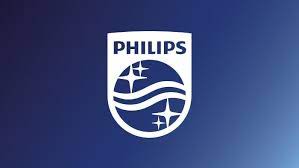Last week, Albemarle Corporation (Albemarle) agreed to pay more than $218 million to resolve investigations by the U.S. Department of Justice (DOJ) and the Securities and Exchange Commission (SEC) into violations of the Foreign Corrupt Practices Act (FCPA) stemming from Albemarle’s participation in corrupt schemes to pay bribes to government officials in multiple foreign countries.
According to a Non-Prosecution Agreement (NPA) with the DOJ, between 2009 and 2017, Albemarle, through its third-party sales agents and subsidiary employees, conspired to pay bribes to government officials to obtain and retain chemical catalyst business with state-owned oil refineries in Vietnam, Indonesia, and India. According to the SEC Administrative Order (Order), the bribery schemes extended into China and the UAE. Today, we consider the company’s conduct, which allowed it to receive such an outstanding reduction, leading to the significantly lower final penalty under the new Corporate Enforcement Policy.
Untimely Self-Disclosure
One of the interesting factors in this matter is that Albemarle voluntarily disclosed to the DOJ the illegal conduct at issue. However, NPA noted that “the disclosure was not “reasonably prompt” as defined in the Criminal Division Corporate Enforcement and Voluntary Self-Disclosure Policy and the U.S. Sentencing Guidelines.” As further laid out in the NPA, Albemarle learned of allegations regarding possible misconduct in Vietnam approximately 16 months before disclosing it to the DOJ. After that, “an internal investigation, the Company gathered evidence demonstrating the potential misconduct at least approximately nine months prior to the disclosure. The Company took remedial action and continued to investigate other potential issues. In January 2018, the Company disclosed to the Fraud Section misconduct relating to four separate geographies, including Vietnam.”
This meant the self-disclosure “was not within a reasonably prompt time after becoming aware of the misconduct in Vietnam,” and it means that Albemarle did not meet the standard for voluntary self-disclosure under the Criminal Division Corporate Enforcement and Voluntary Self-Disclosure Policy. Nevertheless, the DOJ “gave significant weight, in evaluating the appropriate disposition of this matter—including the appropriate form of the resolution and the reduction for cooperation and remediation—to the Company’s voluntary, even if untimely, disclosure of the misconduct.” The NPA stated that the company received credit for its “voluntarily disclosing the conduct that forms the basis for this Agreement before it came to the attention of the Offices.”
Significant Cooperation
The company was credited with significant cooperation with the DOJ during the pendency of its investigation, and the Company received credit for its cooperation with the DOJ investigation. It cooperated with their investigation and demonstrated recognition and affirmative acceptance of responsibility for its criminal conduct. The NPA went on to note that “the Company also received credit for its substantial cooperation and extensive and timely remediation. The company
- Promptly providing information obtained through its internal investigation, which allowed the government to preserve and obtain evidence as part of its extensive independent investigation;
- made regular and detailed presentations to the Offices;
- proactively identifying information previously unknown to the Offices;
- met DOJ requests promptly;
- voluntarily making foreign-based employees available for interviews in the United States;
- collected and produced voluminous relevant documents and translations to the Offices, including documents located outside the United States and
- It produced documents to the DOJ from foreign countries in ways that did not implicate foreign data privacy laws.
Extensive Remediation
Albemarle also received credit “because it engaged in extensive and timely remedial measures.” These remedial measures include:
- The Company started its remediation program based on its internal investigation of the misconduct prior to the DOJ investigation (
- Albemarle disciplined employees involved in the misconduct, including terminating eleven employees and withholding bonuses from sixteen employees;
- Albemarle is strengthening its anti-corruption compliance program by investing in compliance resources, expanding its compliance function with experienced and qualified personnel, and taking steps to embed compliance and ethical values at all levels of its business organization;
- The Company “transformed its business model and risk management process to reduce corruption risk in its operation and to embed compliance in the business, including implementing a go-to-market strategy that resulted in eliminating the use of sales agents throughout the Company, terminating hundreds of other third-party sales representatives, such as distributors and resellers, and shifting to a direct sales business model;
- The company provides extensive training to its sales team and restructuring compensation and incentives so that compensation is no longer tied to sales amounts;
- The company used data analytics to monitor and measure its compliance program’s effectiveness and
- Albemarle engages in continuous testing, monitoring, and improvement of all aspects of its compliance program, beginning almost immediately following the identification of misconduct.
Holdbacks (not Clawbacks)
While the DOJ has made much noise about clawbacks from recalcitrant executives, Albemarle engaged in holdbacks, where they did not pay bonuses to certain employees involved in the conduct or those who had oversight. The NPA stated, “The Company withheld bonuses totaling $763,453 during the course of its internal investigation from employees who engaged in suspected wrongdoing.” The illegal conduct involved those who “(a) had supervisory authority over the employee(s) or business area engaged in the misconduct; and (b) knew of, or were willfully blind to, the misconduct.” The significance of this effort was important as it qualified Albemarle for an additional fine reduction of a dollar-for-dollar credit of the amount of the withheld bonuses under the Criminal Division’s March 2023 Compensation Incentives and Clawbacks Pilot Program.
Culture, Culture, Culture
Albemarle received additional credit or at least did not sustain any enhancement from the DOJ culture analysis. The NPA stated, “The Company has some limited history of prior civil and regulatory actions, including environmental and workplace safety matters, but no prior criminal history.” From this language and other enforcement actions taken since the October 2021 announcement of culture as an item the DOJ would assess, it now appears that civil and regulatory matters, particularly those in the ethics and compliance arena, would not be held against companies.
The Result
All of the above factors led to a significant discount for Albemarle under the Corporate Enforcement Policy. The NPA stated, “Accordingly, after considering (a) through (k) in paragraph 2 above, the Offices have determined that the appropriate resolution of this case is a non-prosecution agreement with the Company; payment by the Company in the amount of a $98,236,547 criminal monetary penalty, which reflects a discount of 45 percent off the bottom of the otherwise-applicable U.S. Sentencing Guidelines fine range and an additional discount of $763,453 under the Pilot Program, and $98,511,669 in forfeiture, which, as described below in paragraph 10, will be credited, in large part, against disgorgement of ill-gotten profits that the Company pays to the SEC in a concurrent resolution.” [emphasis supplied]
In other words, the actions of Albemarle saved it around $90 million in additional fines under the Policy, and this needs to take into account the discounts under the U.S. Sentencing Guidelines as their calculation was not reported in the NPA.
Join us tomorrow to review some of the key lessons learned.







